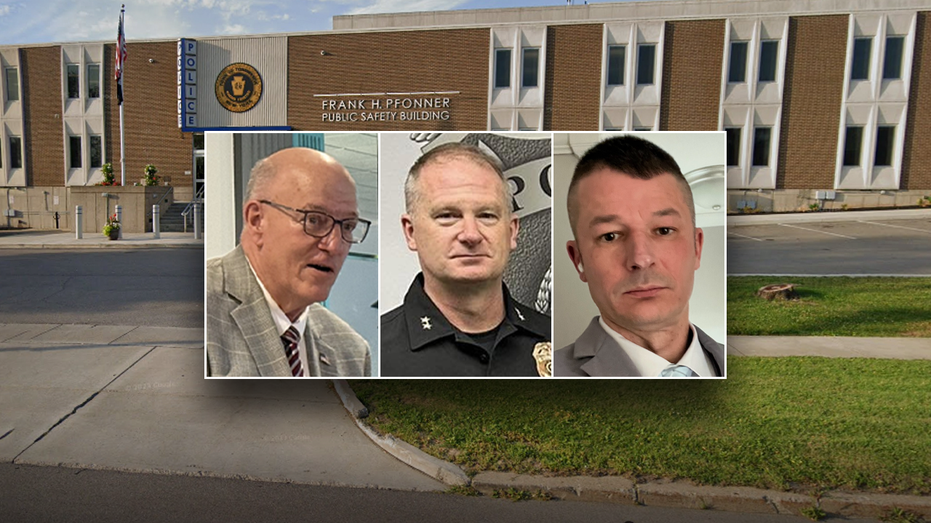In recent weeks, tensions have escalated in small-town America as local police departments find themselves under increased scrutiny from Democratic leadership. Accusations of a politically motivated campaign to impose heavy financial penalties on law enforcement officials have sparked outrage among community members and law enforcement advocates alike.
Reports have surfaced highlighting a disturbing trend where Democratic elites are allegedly targeting police departments in smaller municipalities with fines that amount to double their annual salaries. This has raised concerns among both residents and law enforcement agencies regarding the fairness and intent behind these actions.
Many officers are voicing their frustrations, claiming that these fines are not just excessive; they perceive them as a “witch hunt” against law enforcement that aims to undermine their authority and demoralize their departments. The situation has prompted heated debates about public safety, accountability, and the future of policing in America.
At the center of this controversy are various Democratic leaders, who have been accused of pushing for these measures as part of a broader agenda to promote police reform and accountability. Critics argue that while reform is necessary, the drastic fines imposed on police departments could hinder their ability to serve and protect communities effectively.
Local police officers express concerns about their financial stability and the overall implications of these fines. “How can we keep our community safe when our budget is being slashed?” questioned a chief of police from a small town in the Midwest. “At the end of the day, these fines hurt the very people we are sworn to protect.” This sentiment echoes the feelings of many law enforcement officials across the nation.
Supporters of the fines claim that they are a necessary measure to enforce accountability among police departments, particularly in areas where misconduct has been reported. They argue that by imposing financial penalties, officers will be more inclined to adhere to policies and regulations designed to foster better relationships between law enforcement and the community.
However, opponents contend that the approach taken by Democratic leaders is overly punitive and fails to address the underlying issues that contribute to police misconduct. Many argue that a more constructive dialogue between community members and law enforcement would be more effective in building trust and transparency.
Activists advocating for police reform see the imposition of such fines as part of a larger narrative surrounding systemic racism and police brutality in America. They argue that the actions targeting small-town police are rooted in a desire to create lasting change in communities where officers have historically been perceived as aggressors rather than protectors.
Despite the backlash, Democratic leaders maintain that these fines serve an essential purpose. They argue that by holding police departments accountable financially, they are promoting justice and equity in jurisdictions that have previously been resistant to change. “We need to prioritize the voices of those who have been marginalized and ensure that law enforcement agencies are held accountable,” said a prominent Democratic politician during a recent press conference.
The controversy has ignited a national conversation about police funding and reform. Critics of the fines believe that diverting resources away from law enforcement through heavy penalties could lead to a decline in public safety. Local leaders fear that these actions may force departments to reduce staffing levels, resulting in longer response times and potentially increasing crime rates in underserved communities.
As discussions continue, many community members are left grappling with the ramifications of these fines and what they mean for the safety of their neighborhoods. “We need our police, but we also want them to be held accountable,” voiced a resident from a small town experiencing rising tensions. “There has to be a balance, and I hope our leaders can find it.” This statement encapsulates what appears to be a growing sentiment among citizens who value both the principle of law enforcement and the need for accountability.
In response to the mounting pressure, some Democratic leaders have begun to reconsider their approaches to policing policies. Discussions around alternative methods for overseeing police conduct, such as establishing independent review boards or increasing transparency through data sharing, are gaining traction. These proposals seek to create a more collaborative environment between police departments and the communities they serve, with the goal of addressing concerns without resorting to aggressive financial penalties.
Adding to the complexity of this situation is the role of federal funding in local law enforcement. Many small-town police departments rely on federal grants and support to maintain their operations. As discussions regarding fines and accountability unfold, there is concern that federal involvement could become politicized, potentially jeopardizing the funding needed for basic law enforcement functions.
The situation continues to develop, and it remains unclear how this debate will ultimately impact small-town policing nationwide. With elections looming and a divided public opinion, the stakes are high for both community leaders and law enforcement. Many are now looking for substantive dialogue and cooperative efforts rather than punitive measures.
As small-town police departments navigate these turbulent waters, community members are eager for solutions that prioritize safety, accountability, and effective policing. Continued advocacy for open communication and mutual respect between police and the communities they serve offers a path forward that could restore trust and ensure public safety.
Ultimately, the ramifications of the actions taken by Democratic elites against small-town police will likely shape the future dynamics of law enforcement across America. Many hope that the conversation moving forward will focus not only on accountability but also on unity and shared goals. Achieving a balance between reformative action and supportive measures could pave the way for stronger police-community relationships, helping to establish a more just and equitable society for all.
































